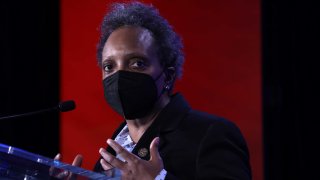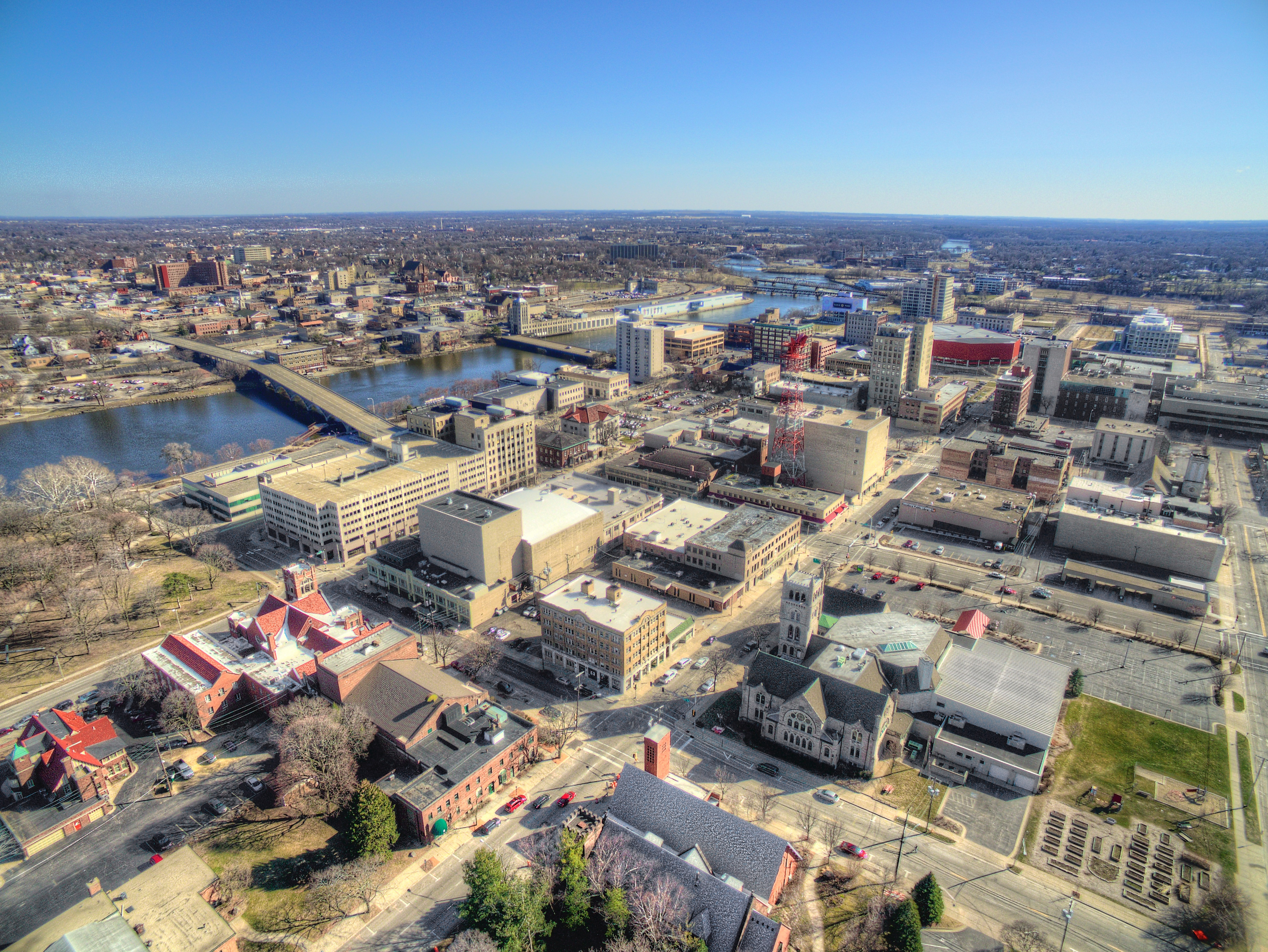
Chicago’s mayor hasn’t gotten a pay raise since 2006. Mayors Richard M. Daley, Rahm Emanuel and Lori Lightfoot have all been paid $216,210 a year.
Not for long, if Lightfoot gets her way.
The catch-all “management ordinance” introduced at Wednesday’s City Council meeting and tied to Lightfoot’s $16.4 billion budget proposes tying the mayor’s future salary to the rate of inflation or 5%, whichever is less.
The inflationary trigger is similar to one the mayor has imposed on annual property tax increases — though she’s forfeiting this year’s increase to give inflation-squeezed Chicagoans a pre-election reprieve.
Feeling out of the loop? We'll catch you up on the Chicago news you need to know. Sign up for the weekly Chicago Catch-Up newsletter here.
A 5% pay hike would raise the mayor’s salary by $10,810, to $227,020. The increase would take effect Jan. 1, 2024.
The city treasurer and city clerk, both in line for 20.5% raises to $161,016, also would get annual increases after that capped at 5% or the rate of inflation, whichever is less. All three could issue sworn statements declining the annual increases, just as alderpersons can do now with their annual increases tied to inflation — though without a 5% cap.
Risking preelection backlash, Clerk Anna Valencia and Treasurer Melissa Conyears-Ervin have both said they will accept the — from $133,545 to $161,016 — in Lightfoot’s 2023 budget.
Local
Seventeen of 50 Council members have declined their inflation-based 9.62% raise. It boosts the maximum annual salary for an alderperson to $142,772.
Conyears-Ervin noted during budget hearings that the clerk and treasurer salaries had remained unchanged since 2005 — and state law requires elected officials’ raises be approved before an election.
During that same period, the maximum aldermanic salary has risen about 50%, from $95,000 to $142,000, the treasurer said.
“So while the clerk and treasurer’s role has an adjustment, it’s certainly well below — well below — a 50% increase,” said Conyears-Ervin, whose husband, Ald. Jason Ervin (28th), is among those accepting the aldermanic raise.
If her salary remains unchanged, “there would be five employees of mine that would make more than I.”
Valencia was equally unapologetic.
“If the ordinance passes, which is up to the aldermen in this body, I will accept it,” the clerk said.
“I love the work. … So whether it’s me, and I’m lucky enough to be the city clerk, or the next clerk, it would be a fair adjustment.”
Downtown Ald. Brendan Reilly (42nd) put both women on the spot about the raises after noting “17 of us here decided to forego our raises, and three of us have an ordinance pending that would prohibit any commissioner or elected official” from getting a raise next year.
“With the cost of inflation right now and many people struggling to make ends meet, I think it’s important as leaders that we forego these raises. I respect my colleagues who chose not to. But personally, I think it’s an important statement to make,” he said.
After declining his pay raise, Ald. Marty Quinn (13th) said he was having trouble understanding the rationale for the clerk and treasurer accepting more than twice that much, percentage-wise.
“I’m just obviously concerned about optics,” he said.
Ald. Andre Vasquez (40th) did not decline a raise, but, like the mayor, he has proposed limiting future aldermanic pay raises to 5% or the inflation rate, whichever is less. The 5% cap would kick in when the new Council is sworn in next spring.
Mayoral challenger Ald. Ray Lopez (15th) has his own pending ordinance to reduce the annual salary for alderpersons — both new Council members as well as veterans who have accepted all the inflationary pay raises — from $142,772 to $120,000.
His version would tie future pay raises to inflation, but with a 3% cap, and prohibit outside jobs.
Resolution marks synagogue shooting anniversary, Ye comments
Four years after a gunman opened fire at Pittsburgh’s Tree of Life Synagogue, killing 11 people, the Council also passed a resolution championed by Lopez reaffirming “our commitment to the Jewish community.”
The resolution specifically mentions “recent comments by Kanye West and others” who have “sparked new waves of internet- and social-media-based anti-Semitism” across the nation.
“We have, in particular, one individual who is using his platform, his notoriety, his fame to fuel anti-Jewish hate at every level and hasn’t stopped in almost three weeks since the Jewish holy holiday of Yom Kippur — up until even just last night,” Lopez said. “Continuing to spew hateful messages day after day and digging them in deeper and deeper and inspiring people to go darker and darker.”
Ald. Debra Silverstein (50th), an Orthodox Jew, pointed to the 71% increase in hate crimes in Chicago, most targeting Jews.
“Swastikas were painted on our synagogues. Windows were broken in the Jewish businesses in the ward. We are on high alert. We are always on high-alert,” Silverstein said.
“Our message is clear. Our message is very clear. We will not stand for this type of hate.”
Tunney OK with Cubs Friday night game right after All-Star break
Also Wednesday, retiring Ald. Tom Tunney (44th) introduced another exception to the ban on Friday night games at Wrigley Field. The ordinance would allow the Cubs to make the most of their 2023 All-Star break and return to play a night game on Friday, July 14.



